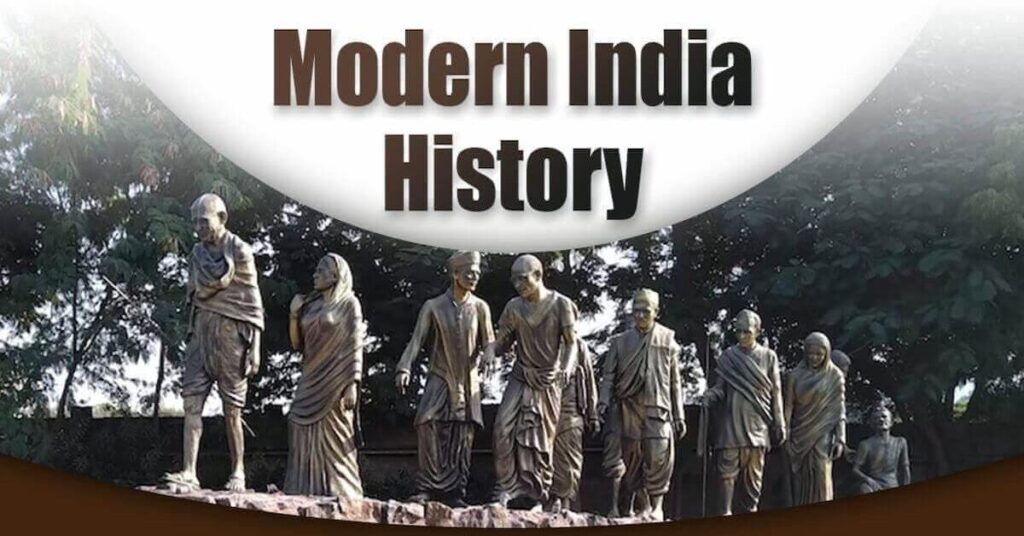Introduction:
In Modern Indian history early present-day time frame started in the sixteenth hundred years, when the Mughal Empire vanquished the majority of the Indian subcontinent, flagging the proto-industrialization, turning into the greatest worldwide economy and assembling power, with an ostensible GDP that esteemed a fourth of the world GDP, prevalent than the mix of Europe’s GDP. Slam Mohan Ray is known as the ‘Father of Modern India’ in acknowledgment of his age-making social, instructive,,, and political changes.


Credits: Iasmania
The History of Modern India:
The First History of Modern India, was composed by Bipin Chandra, one of the most famous and eminent creators, zeros in favoring the financial, strict, and social history of India over the political variables.
The Significance of Modern Indian History:
The British regulated India for a time of around two centuries and achieved progressive changes in the social, political,, and monetary existence of the country. When the British set their foot positively on Indian soil, they started the business double-dealing of the regular assets of India.
Present-day Indian history is a trial of two center-ground methods of reasoning. As an early defender of non-arrangement in global governmental issues, India has endeavored to lay out a middle position among Western and communist-situated states.
Freedom Fighters of India:
Their courageous deeds procured Vallabhbhai Patel the title of the Iron Man of India. For his job in the Bardoli Satyagraha, Patel came to be known as the Sardar. Sardar Patel was a renowned legal counselor yet surrendered his training to battle for the opportunity of the country. After autonomy, he became the agent PM of India and assumed a significant part of the combination of India by blending various August states with the Indian Union.
Indian Independence:
The sensation of patriotism had begun filling in the personalities of Indians as soon as the center of the nineteenth hundred years however it developed more with the arrangement of the Indian public Congress in 1885. However the Congress began a moderate stage yet with the progression of time and the unconcerned disposition of the British government, the public development started to shape well.
Five Major Sources of Modern Indian History:
1. Official records of the British government or organization
The Minto Reforms, the Government of India Act, Reports of the Simon Commission, and other reforms are important sources of the history of the modern period.
2. Papers of the time
The papers, magazines, and novels, in different Indian languages, were printed in the modern age in India.”The Times of India” and many other papers are still printed. All these newspapers and magazines give us information on many important events of the modern age. London Times and vernacular papers are important sources of modern Indian history.
3. Accounts, books, and individual journals of the significant characters
Many books, diaries, and Biographies written at the time are now preserved in Public and Private libraries. These provide information about modern Indian history. In the books, we learn about human development in different fields such as literature, art, history, science, and music.
4. Evaluation and Surveys of the public authority
The evaluation and the Surveys done by the government at that time provide information about the history of modern India.
5. Structures and landmarks of the time
This structure and landmarks tell us the tale of the past. In that time the building is built and much more information we will get. These sources give us information on important historical persons and national leaders.
Highlights of Modern History:
The defining component of cutting-edge time is the improvement of all powers of innovation, i.e., science, reason, a majority rules government, freedom, and equity. Middle age is as a matter of fact a term that is utilized to portray a cultural period that comes up short on these elements.
Conclusion:
The investigation of present-day Indian history is essential to the individuals who need to figure out the real essence of the past and to the people who look to comprehend the idea of the impediments that hinder India’s advancement as a country.
Credits: OnlyIAS UPSC
